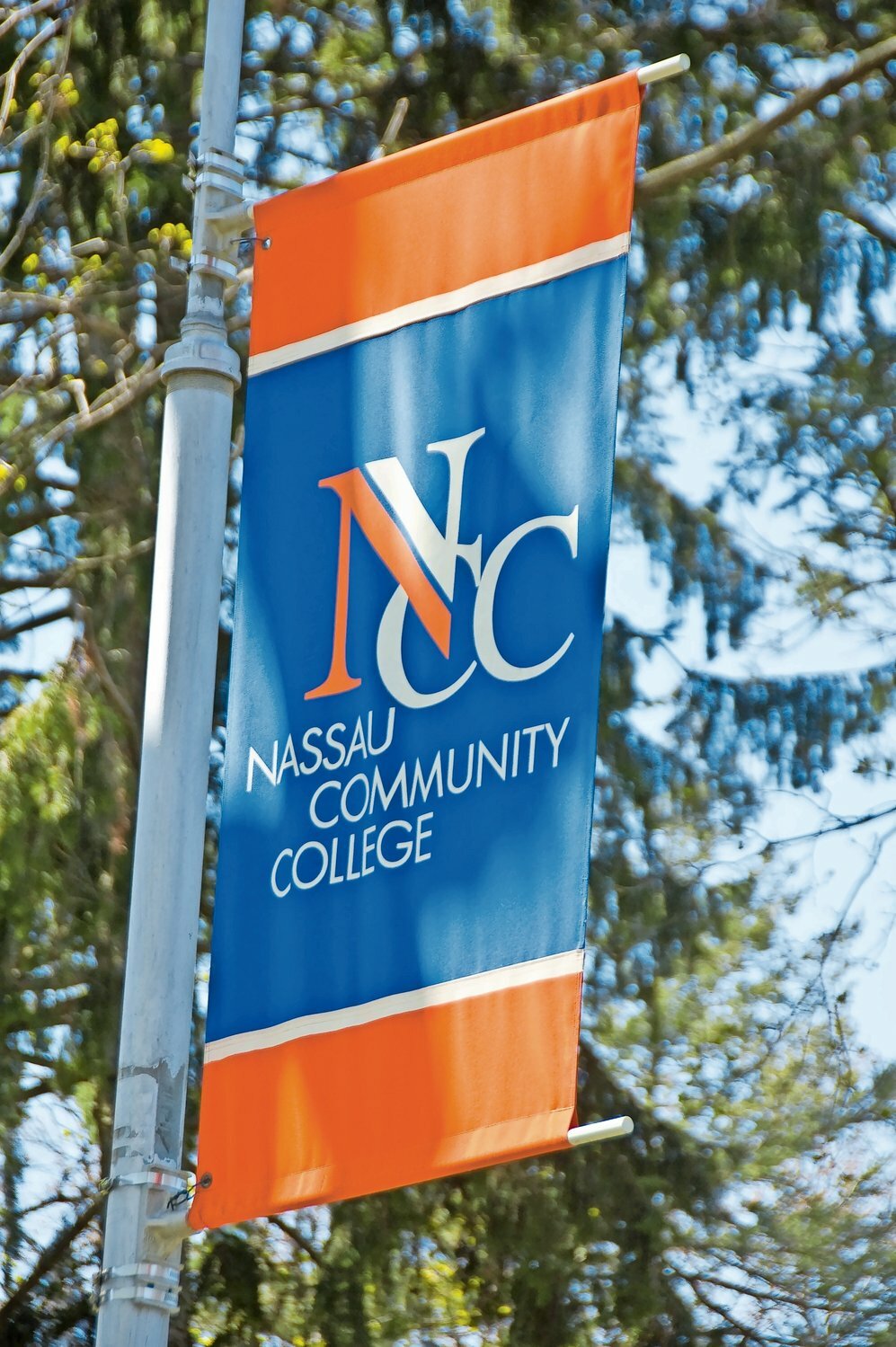Food trucks finally arrive on Nassau Community College
Food trucks finally arrived on the campus of Nassau Community College at the end of week after all the dining halls, including the campus Starbucks, abruptly shut down, with almost no warning to the student body.
Since their closing, students and faculty alike have demanded that the college restore the dining halls or come up with better solutions than offering food trucks, vending machines and peanut butter and jelly sandwiches.
Following last week’s protests, the No Good Burger food truck started operating on April 24, and will continue to do so three days a week through May 22, college officials said. Another food truck, The Big Cheese, which serves halal food, appeared on campus for the first time early this week, and likewise plans to stick around until the end of the semester.
“We thank you for your patience as the college continues to explore new food options for the campus community,” a notice on the college’s website stated. But the current situation, according to students and faculty, is still unacceptable.
“It’s unconscionable,” said Faren Siminoff, president of the Nassau Community College Federation of Teachers. She added that NCC leadership knew well in advance about the planned departure of Compass Group, the food service provider who pulled out of its contract with the college early this month, and failed to develop a contingency plan to feed the college’s students. Siminoff likened the lackluster leadership of the school to being “the Nassau University Medical Center of higher education.”
Late last week, Siminoff, along with the teachers union, sent County Executive Bruce Blakeman a letter asking for an emergency allocation of county funds to be directed to NCC for “the sole purposes of restoring on-campus dining or implement(ing) a stopgap solution for the remainder of the semester.”
“Initially, administrators reported that the college’s on-campus dining vendor had decided to end its contract,” Siminoff wrote. “But we learned shortly thereafter that despite administrators knowing for months the vendor was planning to leave and knew in March there would be no food services by April, they made no plans for this eventuality, leaving the college a food desert.”
Siminoff stressed that time was of the essence, and added that the crisis was only the latest example of what she described as either incompetence or malfeasance by college leaders.
She also detailed how administrators had “disregarded a number of legitimate and serious concerns” brought to them by faculty and students, and that those who are on fixed budgets have had to leave campus in order to eat, and have been feeling the financial impact of the administration’s blunder.
“The administration had the gall to say that students ‘won’t starve’ on campus, and suggested that they simply made do with Uber, which is considerably more expensive than on-campus meals,” Siminoff wrote. “Administrators have shown that they are not only out of touch with the needs and challenges of our student body, but that they are totally insensitive to the crisis they helped create.” She called NCC’s implementation of food trucks “a band aid solution.”
“As County Executive, you have the authority to submit to the County legislature the names of new qualified individuals to serve on NCC’s Board of Trustees and the platform to publicly demand the resignation of the incumbent administrators,” Siminoff’s letter read. “We believe that both actions are necessary first steps toward restoring the public’s trust in NCC.”
Last June, county legislators approved a $185 million 2023-24 budget for NCC, keeping tuition stable for the second consecutive year and tapping into more than $15 million of reserve funding as well. State and county funding and tuition each normally account for about one-third of NCC’s annual operating budget, according to Jerry Kornbluth, NCC’s vice president of community and governmental relations. In the past few years, however, the state has funded only about 20 percent of the budget, which has put additional pressure on tuition and county funding to bridge the gap.
NCC’s budget for next year is set to be submitted to the legislature soon and voted on in June.
Blakeman did not respond to the Herald’s repeated requests for comment on whether the county would allocate any additional funding to NCC or intervene in the current situation.









